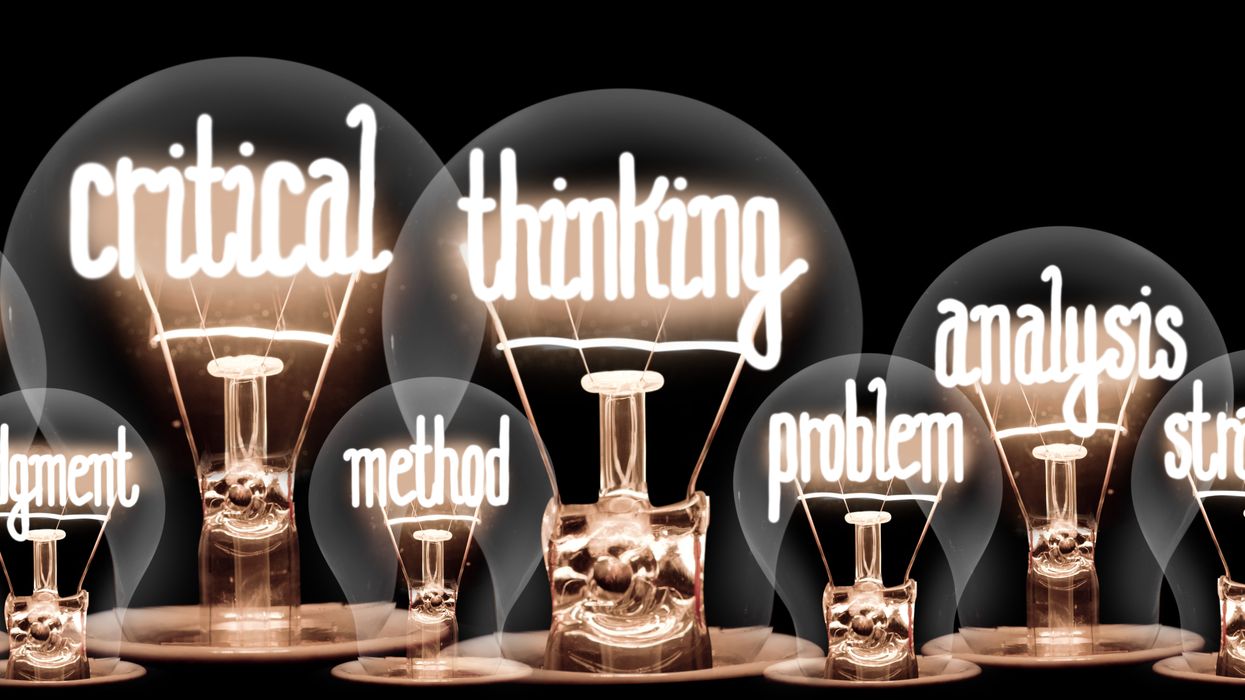Beaumont is an independent wisdom researcher who is developing the Applied Wisdom curriculum on Wikiversity.
ChatGPT generated this text, responding to the prompt, “Write an essay with the title ‘Critical thinking is not an ad hominem attack.’” It has been lightly edited for style.
As we strive to understand the recent assassination attempt on former President Donald Trump, there have been numerous calls to unite our country and to avoid incendiary rhetoric. In this context, it is crucial to distinguish between critical thinking, which can foster unity, and ad hominem attacks, which sow division and incite hatred and violence.
In the realm of discourse and debate, the ability to think critically is often heralded as a cornerstone of intellectual engagement. Critical thinking involves analyzing, evaluating and synthesizing information in a reasoned manner, aiming to arrive at well-supported conclusions. Despite its pivotal role in fostering robust discussions, critical thinking is sometimes misconstrued as a form of personal attack, specifically an ad hominem attack. This misunderstanding can stifle productive dialogue and hinder the development of well-reasoned arguments. It is crucial to distinguish between critical thinking and ad hominem attacks to ensure that intellectual discourse remains constructive and focused on the issues at hand.
An ad hominem attack occurs when someone targets the character, motive or other attributes of the person making an argument, rather than addressing the substance of the argument itself. This fallacy is a diversionary tactic, shifting the focus from the argument's merits to irrelevant personal traits. For example, dismissing someone's viewpoint on climate change by attacking their lack of scientific credentials is an ad hominem attack. It fails to engage with the actual argument and instead undermines the individual's credibility based on personal characteristics.
In contrast, critical thinking involves a systematic and objective examination of arguments and evidence. It requires one to assess the validity of claims, the reliability of sources and the logical coherence of conclusions. Critical thinking is not concerned with who is making the argument but with the strength and relevance of the evidence and reasoning presented. For instance, questioning the validity of a study on climate change by examining its methodology, data sources and potential biases is an exercise in critical thinking. It focuses on the argument's substance rather than the person presenting it.
The confusion between critical thinking and ad hominem attacks often arises from a lack of understanding of what each entails. Critical thinking can be perceived as confrontational or negative because it involves questioning and challenging ideas. However, this process is essential for intellectual growth and the refinement of ideas. It encourages a rigorous examination of assumptions and fosters a deeper understanding of complex issues. Ad hominem attacks, on the other hand, contribute nothing to the intellectual process and only serve to derail constructive discussion.
A key element of critical thinking is the principle of charity, which involves interpreting others' arguments in their strongest, most reasonable form before critiquing them. This principle ensures that the focus remains on the ideas rather than on the individuals presenting them. By applying the principle of charity, critical thinkers demonstrate respect for their interlocutors and uphold the integrity of the discourse. This approach contrasts sharply with ad hominem attacks, which display a lack of respect and a disregard for the actual arguments being made.
Moreover, critical thinking promotes intellectual humility. It acknowledges that no one has a monopoly on truth and that all arguments are subject to scrutiny and revision. This humility is absent in ad hominem attacks, which often stem from a desire to assert dominance rather than to engage in genuine inquiry. Critical thinkers are open to being challenged and to changing their views based on new evidence or more compelling arguments. This openness is vital for the advancement of knowledge and for fostering a culture of respectful and meaningful dialogue.
In conclusion, critical thinking and ad hominem attacks are fundamentally different in their purpose and execution. Critical thinking is an essential tool for evaluating arguments and advancing knowledge, focusing on the quality of evidence and reasoning. Ad hominem attacks, by contrast, are fallacious and counterproductive, targeting individuals rather than engaging with their arguments. To preserve the integrity of intellectual discourse, it is imperative to recognize and uphold the distinction between these two forms of engagement. By fostering a culture of critical thinking, we can ensure that debates remain constructive, respectful and centered on the pursuit of truth.




















Trump & Hegseth gave Mark Kelly a huge 2028 gift